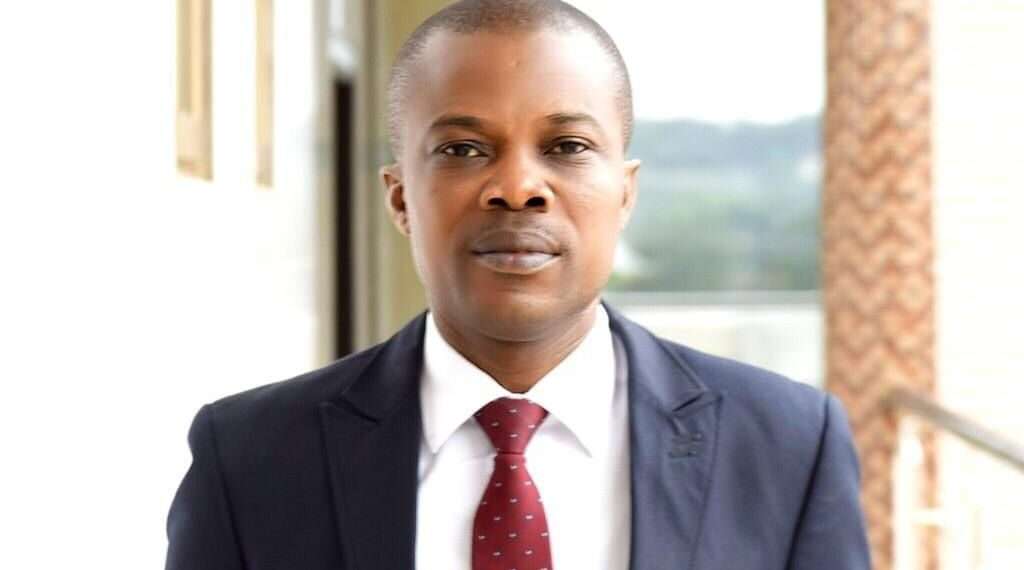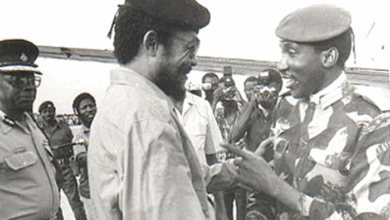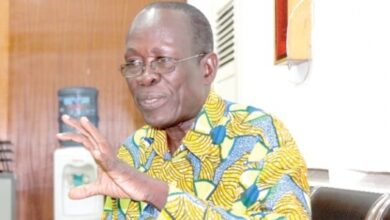Security Expert Urges Stronger Government Role and Visible Policing in Bawku.
Security consultant and fraud expert Mr. Richard Komadoe has expressed his views on the increasing security concerns in Bawku, urging a collaborative approach between the government and law enforcement agencies.
Speaking on Adekyee Mu Nsem, Mr. Komadoe highlighted the critical need for a proactive government response, emphasizing, “We need to play it safe and let the government step up to its responsibility, doing what it’s meant to do to ensure stability.
“He elaborated on the limitations faced by agencies like the Small Arms Commission, which lacks the resources to independently control the flow of illegal arms.
“It’s essential for the police to review their arms registration processes.
Many arms are circulating within communities, creating a thriving underground business.
Stricter due diligence in arms handling and accountability at these places is urgently needed,” he stated.
However, he believes the most immediate solution lies in assertive, visible policing.
“When the police are strong and aggressive in the public eye, it suppresses criminal activity.
Criminals are less likely to act when they feel closely watched,” he explained, adding that a lack of presence only emboldens bad actors.
Mr. Komadoe outlined five key security points he sees as critical to ensuring public safety and mitigating risks in politically charged areas:
1. Protective Covering: Emphasizing the importance of adequate security measures, Mr. Komadoe urged political parties to educate their supporters on safety practices.
“In some constituencies, the way rallies and gatherings are organized unintentionally heightens insecurity.
Political parties need to prioritize educating their base on safety.”
2. Behavior of Political Candidates: He observed that some politicians themselves can be a source of risk, pointing out that their actions and behaviors might inadvertently expose them to danger.
He encouraged political figures to be mindful of how their conduct could create vulnerabilities.
3. Early Coordination with Police: Mr. Komadoe stressed that effective security requires collaboration with law enforcement from the planning stage.
“In high-risk constituencies, the police must be involved in event planning early on.
If organizers wait until the last minute to notify the police, they are putting themselves and others at risk.
Police must be part of every detail, from choosing a location to planning logistics.”
4. Active Involvement of Security Coordinators: He recommended that security coordinators, especially those within constituencies, play a central role in ensuring safety during events.
“What we see too often is that politicians make decisions, then inform everyone else after the fact.
This reactive approach leaves room for mistakes and creates unsafe conditions.”
5. Discretion of Security Information: Addressing a troubling trend, Mr. Komadoe noted that some Members of Parliament and political candidates discuss their personal security on public platforms, such as TV and radio, exposing potential vulnerabilities.
“Revealing too much information about one’s security plans can backfire, making them easy targets,” he cautioned.In closing, Mr. Komadoe emphasized the need for a unified, vigilant approach as election tensions rise.
By fostering collaboration and reinforcing strong, visible law enforcement, he believes Ghana can move toward a safer, more stable election period.
Story by : Mercy Addai Turkson





